The pursuit of knowledge is an ongoing journey, one that requires dedication, curiosity, and most importantly open-mindedness.
Knowledge is the tool used to navigate through life and make informed decisions, both in a personal and professional sense.
In this collection of knowledge quotes, we focus on inspiring and thought-provoking words from great individuals in history. From the early wisdom of ancient oracles to the progressive thinking of modern minds, each quote gives valuable insight into the importance of knowledge.
Whether you’re looking for some individual guidance, a little extra motivation for your team, or a new perspective for your entire organization, enjoy 21 inspiring knowledge quotes to fuel your company.

Quote 1
“Knowledge is Power” – Francis Bacon / Thomas Hobbes
Perhaps the most famous saying about knowledge comes from Francis Bacon, a man who served as Attorney General and then Lord Chancellor of England in the 17th century. He was hugely famous for his philosophy and a key contributor to our modern scientific method. In his seminal 1597 work Meditationes Sacrae, he writes:
“Knowledge itself is power.”
– Francis Bacon
This later becomes the slightly shorter “Knowledge is power,” when English philosopher Thomas Hobbes, who once worked as secretary to Bacon, publishes his 1668 version of Leviathan.
What does it mean? Holding knowledge makes you influential. When you have the answers, you gain reputation. Knowing the best ways to do something attracts the attention of pretty much everyone. In this sense, knowledge becomes authority because those who possess it provide a greater value than those who don’t.
Quote 2
“If I have seen further it is by standing on the shoulders of Giants” – Isaac Newton
Famous scientist Isaac Newton saw an apple falling from a tree and turned it into a sophisticated understanding of gravity that’s still used today. He discovered white light contained many colors, which he then successfully isolated using prisms. He came up with fundamental laws of motion, invented calculus, and even built a six-inch reflecting telescope that could magnify forty times.
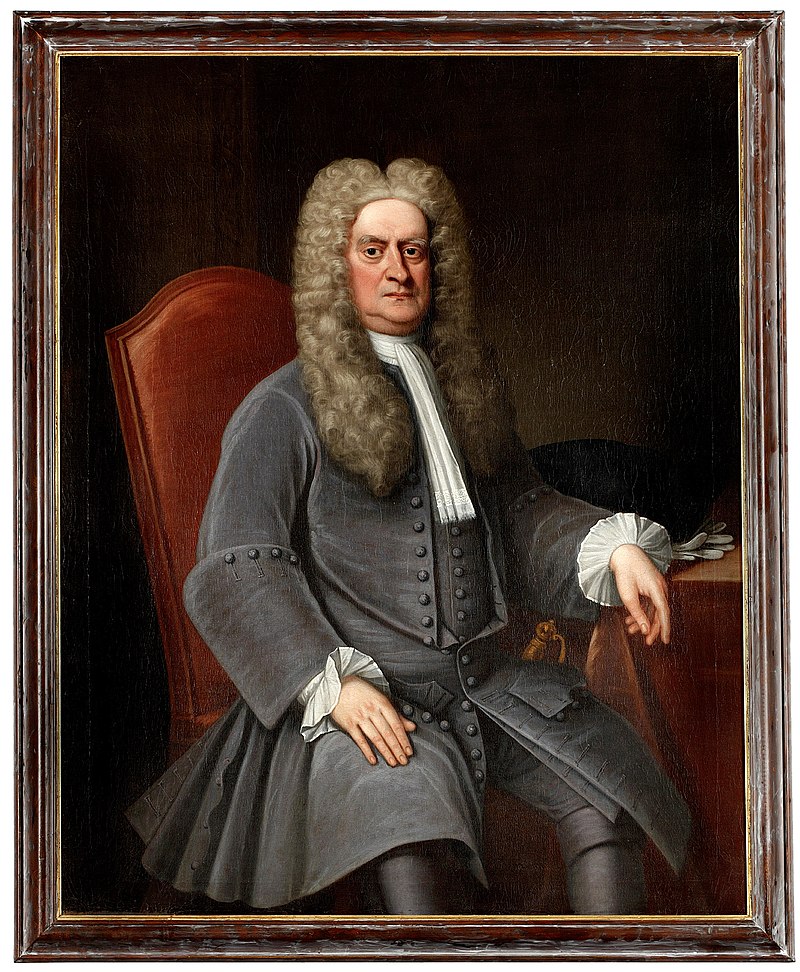
How did he manage all that? How did he see things that no one else could? Well, in a letter to fellow scholar (and later rival) Robert Hooke in February 1975, Newton doesn’t mention any ingenious telescope, but instead shares his opinion on his knowledge:
“If I have seen further it is by standing on the shoulders of Giants”.
– Isaac Newton
It’s a nice way to say that knowledge is cumulative and we acquire it gradually, that in this case Newton owes his discoveries to earlier members of the scientific community. The pursuit of knowledge is a team effort, after all, and the position from which we stand was only made available to us through the work of those before.
Quote 3
“The only people who achieve much are those who want knowledge” – C.S. Lewis
On Sunday 22nd of October 1939, the British writer C.S. Lewis stood firmly behind the lectern of St. Mary the Virgin Church in Oxford, England. He’s best known for his seven-novel series The Chronicles of Narnia, though it would be ten more years before the first of that collection, The Lion, the Witch and the Wardrobe was published.
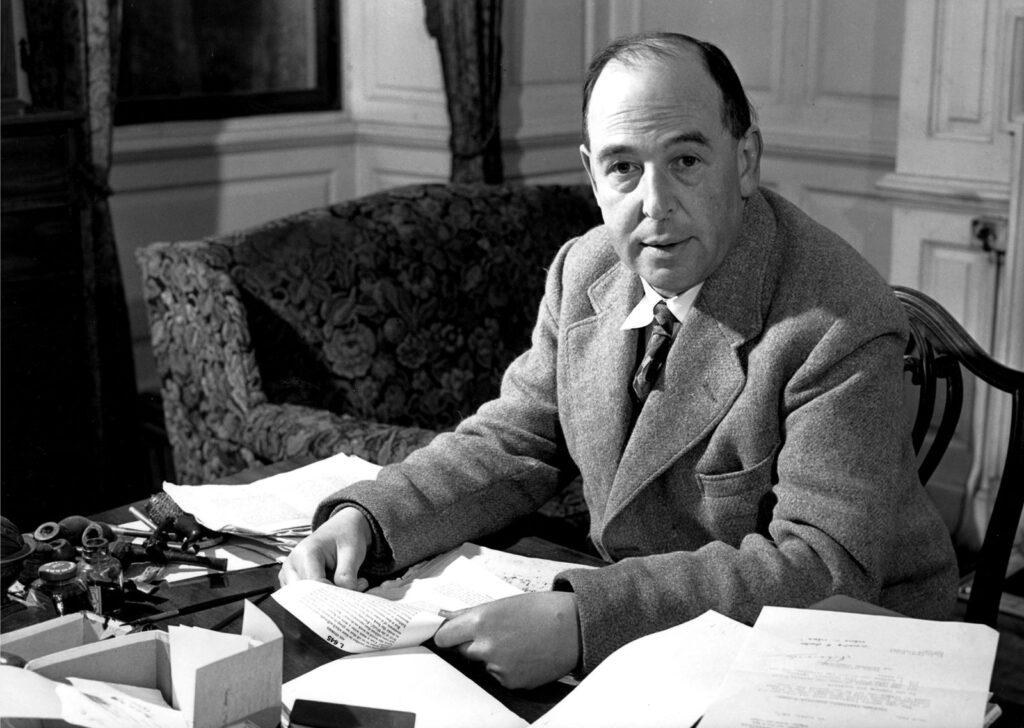
On this day, he was delivering his sermon entitled “Learning in War-Time.” With the Second World War a month underway, the big question for Oxford students and educators was whether their education would continue, and in what form. What was the use in pursuing knowledge in such a volatile time? C.S. Lewis reassured them with these words:
“The only people who achieve much are those who want knowledge so badly that they seek it while the conditions are still unfavorable. Favorable conditions never come.”
– C.S. Lewis
Although he was addressing university students during an emerging war, the larger lesson is clear. No one ever got anything done by waiting for the perfect circumstances. There is always some difficulty that gets in the way, some reason to postpone, but it is only those who persevere that are rewarded.
Quote 4
“No man’s knowledge here can go beyond his experience” – John Locke
The idea of our mind as a blank slate, or tabula rasa, dictates that we are born without any preconceived ideas. While this idea dates back to the ancient Greeks, English philosopher and physician John Locke added a caveat in the 17th century.
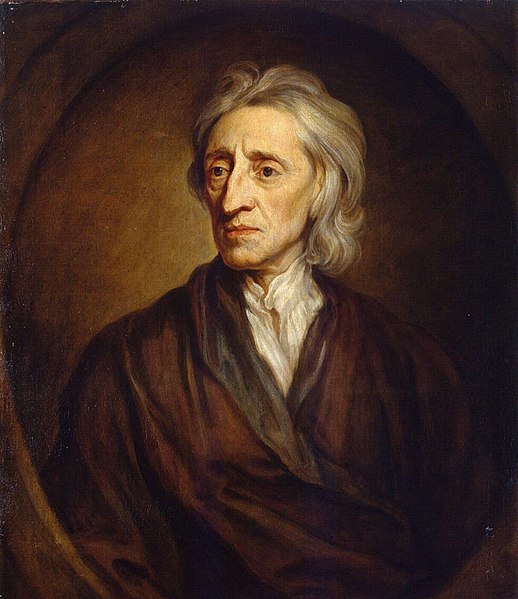
He argued that the knowledge comes solely from how our five senses see the world, saying in An Essay concerning Human Understanding (1690):
“No man’s knowledge here can go beyond his experience.”
– John Locke
While it might seem like he’s saying that experience is a large part of knowledge, he’s actually reiterating the central point that knowledge literally is experience, that we only obtain knowledge through sensory experience.
This places a little extra emphasis on procedural knowledge (learning through doing), as opposed to declarative knowledge (learning facts) and that creating work environments that allow for such learning experiences may enhance staff training.
Quote 5
“Having knowledge but lacking the power to express it clearly is no better than never having any ideas at all” – Pericles
Our view of Greece as the cultural center of the ancient world comes from select visionaries, one of which is certainly the politician Pericles. He ruled Athens from 461 to 429 BC and most of the ruins seen today at the Acropolis came to be through his projects, including the Parthenon.
He wasn’t just a member of the Athenian aristocracy. He was also a military man. For more than two decades he led expeditions, earning the rank of ‘strategos,’ what we would call general. Such a life surely taught Pericles how to plan and communicate with others, which explains his mantra:
“Having knowledge but lacking the power to express it clearly is no better than never having any ideas at all.”
– Pericles
Thankfully, you don’t have to be a military general from Ancient Greece to understand that something is pretty pointless if you can’t use it. Who wants money they can’t spend, a car they can’t drive or food they can’t eat? Knowledge is no different and its true value comes when you can actually communicate and apply it to your situation.
Quote 6
“If you have knowledge, let others light their candles at it” – Margaret Fuller
American journalist Margaret Fuller was an extraordinary woman. She was immensely well-read and in fact the first woman to be allowed access to Harvard’s library. According to Susan B. Anthony, she “possessed more influence on the thought of American women than any woman previous to her time.”
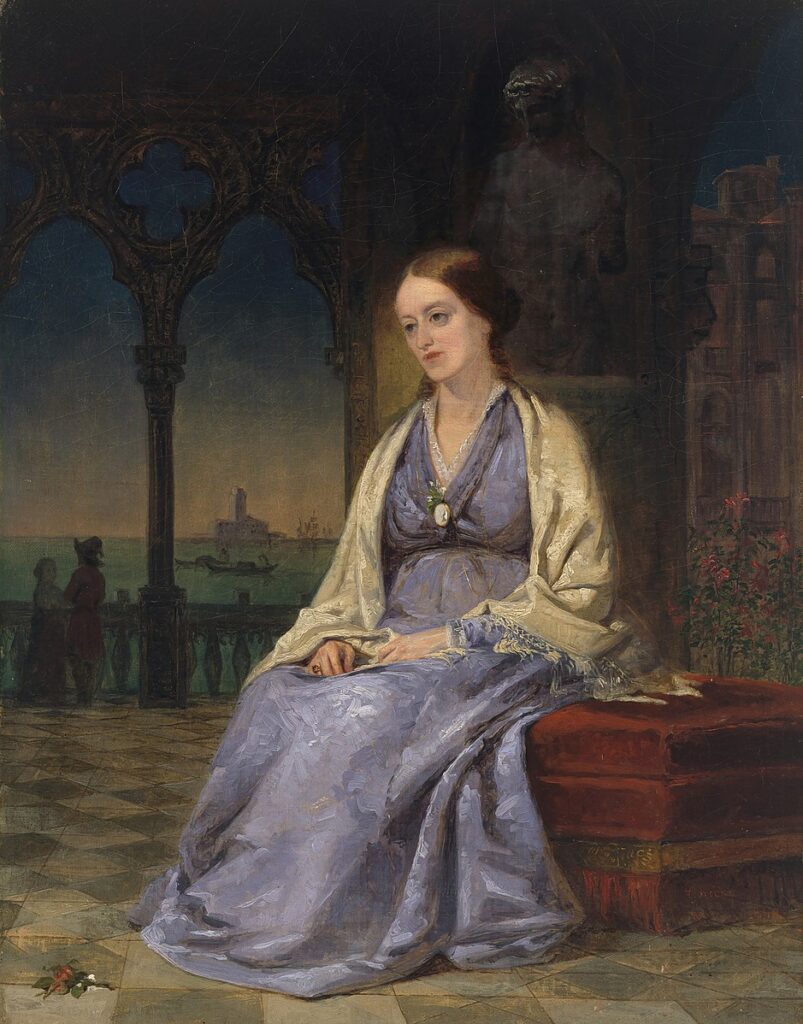
She’s best remembered for her feminist essay Woman in the Nineteenth Century, which argues that allowing women to have greater freedoms will advance the enlightenment of both sexes. One of the freedoms she was especially interested in giving to women was education, summed up by her well-known quote:
“If you have knowledge, let others light their candles at it.”
– Margaret Fuller
Sharing knowledge makes Margaret Fuller’s world a brighter place, one flame at a time. In our modern world, it’s of course true that making your knowledge accessible can empower individuals to think independently, or allow for members of a team or entire organization to work smarter, and burn brighter.
Quote 7
“The important thing is not to stop questioning. Curiosity has its own reason for existence” – Albert Einstein
Despite his genius intellect, the legendary scientist Einstein was not a fan of school. He hated the regimentation and the general intolerance for curiosity and uncertainty. In fact, in his 1929 interview for The Saturday Evening Post, Einstein said, “I believe in standardizing automobiles. I do not believe in standardizing human beings.”
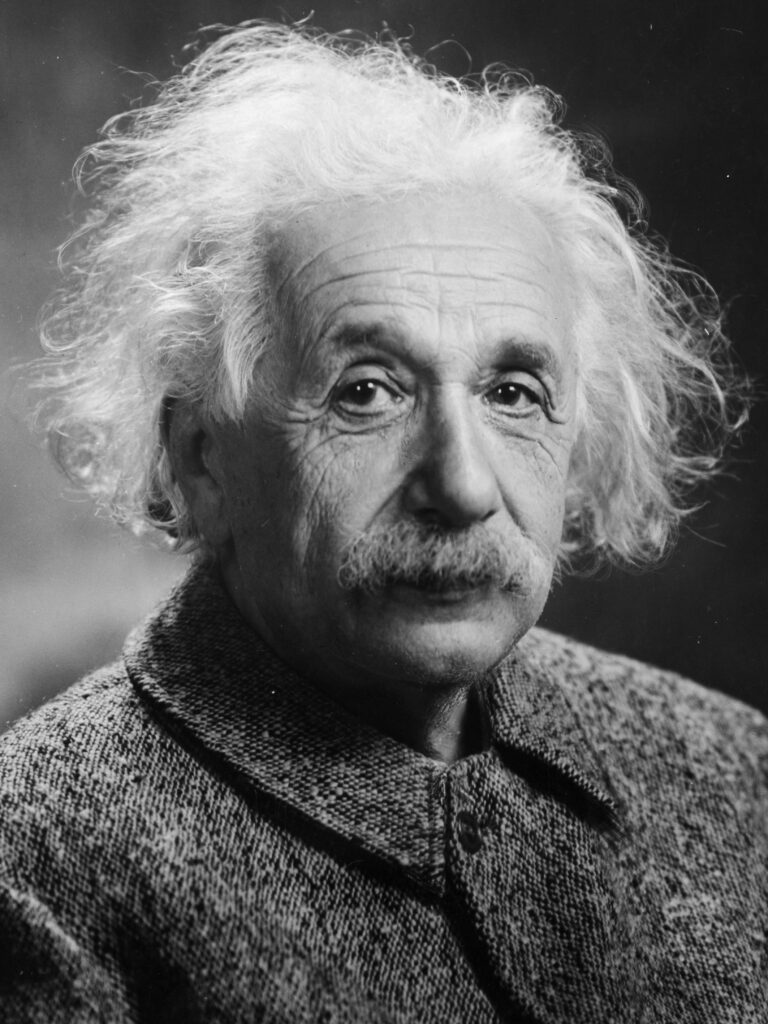
But perhaps the more famous Einstein knowledge quote comes from a 1955 publication of LIFE Magazine, where he offers this advice:
“The important thing is not to stop questioning. Curiosity has its own reason for existence.”
– Albert Einstein
When it comes to institutional knowledge, it can be immensely valuable to stop and question why something is done a certain way, whether that’s to do with internal processes or wider company principles. Entire innovation departments run on questions so when a company wants to stay competitive, they make sure to encourage them.
Quote 8
“An investment in knowledge always pays the best interest” – Benjamin Franklin
Benjamin Franklin stands alone as the only person to have signed all four of the documents that helped to create the United States, which were the Declaration of Independence (1776), the Treaty of Alliance, Amity, and Commerce (1778), the Treaty of Peace (1782), and of course the Constitution (1787). He was evidently an individual passionate about documentation, epitomized by this advocacy of knowledge:
“If a man empties his purse into his head, no man can take it away from him. An investment in knowledge always pays the best interest.’”
– Benjamin Franklin
Organizations today can accomplish a lot by interpreting this quite literally, where gaining knowledge is an actual investment, one that leads to very real profits. Committing resources to revising methods, as well as thinking critically about your entire knowledge management, brings you closer to greater efficiency and productivity.
See top quotes on providing great customer service & support ➡️
Quote 9
“Risk comes from not knowing what you’re doing” – Warren Buffet
American business mogul Warren Buffet has been a big fish in the investment pond for over six decades. Buffet is known as a “value-based” investor, which means he only sides with companies that have a solid foundation, potential for growth, and intrinsic value.
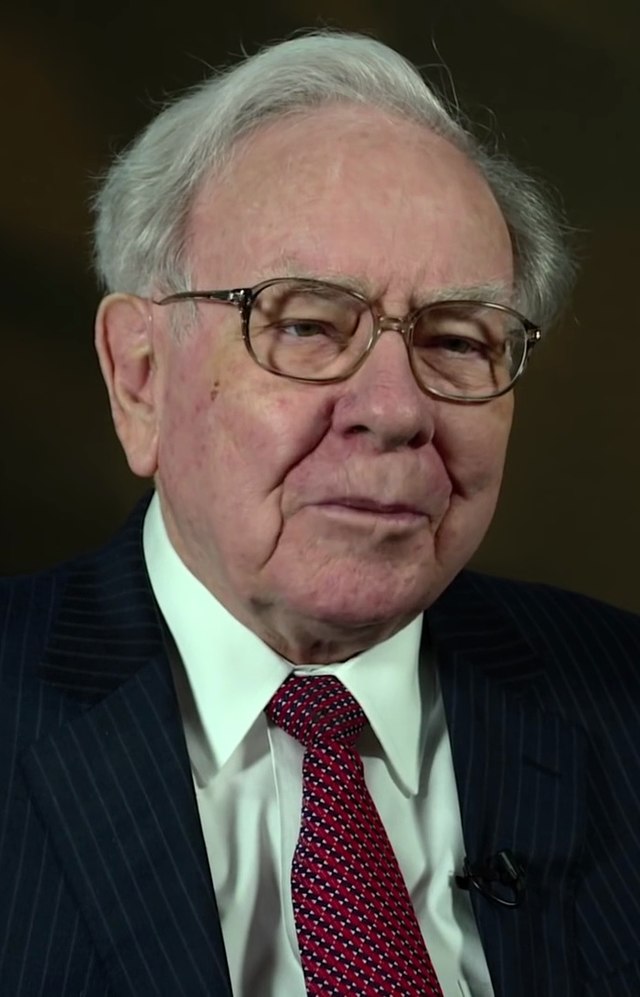
This strategy has allowed him to minimize losses, on which Buffet has this to say:
“Risk comes from not knowing what you’re doing.”
– Warren Buffet
Warren Buffet gives a whole new meaning to the phrase ‘wealth of knowledge,’ and we can apply his thought to pretty much any task or project. Try anything twice and you’ll likely do it better the second time. It then makes sense that companies can save time and reduce costs by working with experts and ensuring that knowledge gained doesn’t leak away, but instead gets stored in some kind of company wiki.
Quote 10
“A little learning is a dangerous thing” – Alexander Pope
English poet Alexander Pope had a rather difficult start in life. Some particularly nasty tuberculosis of the spine (Pott’s disease) meant he grew to only 4 foot 6. The same infection caused breathing trouble, fever, inflammation and pain. On top of all that, William III and Mary II hop on their thrones in 1689 and expel the Catholic Pope family from London.
Previously taught in Catholic schools, the twelve-year-old Pope now has to take charge of his own education. At the time, Catholics weren’t allowed into universities so the young boy educated himself by reading classical writers and epic poets. Later in his most famous poem, An Essay on Criticism, he says:
“A little learning is a dangerous thing.”
– Alexander Pope
Even as his own teacher, Pope has learned that half-knowing a subject gives someone a false impression that they’re an expert, making them overconfident and more prone to mistakes. Now we all make mistakes. The famous “to err is human; to forgive, divine” is in the very same poem.
However, recognizing when you don’t know something can save you from embarrassment and blunders. It’s a crucial factor of success, and the best organizations are first to admit when they need a helping hand.
Quote 11
“Human behavior flows from three main sources: desire, emotion and knowledge” – Plato
Plato was the Greek philosopher who studied under Socrates. He founded the Academy (Akademia), a philosophical school in ancient Athens where Aristotle studied for around twenty years.
Quote 12
“All men by nature desire knowledge” – Aristotle
Speaking of Aristotle, he too had high regards for knowledge. He applied his mind to physics, biology, meteorology, geology, psychology, ethics, poetry, drama, music, linguistics, economics, and politics…you can certainly call that a strong desire for knowledge.
Quote 13
“Where there is shouting, there is no true knowledge” Leonardo da Vinci
Leonardo da Vinci is arguably the most famous mind of the renaissance period, and creator of the most recognizable painting in the world, Mona Lisa. Boasting a true genius intellect, his notebooks were filled with drawings and diagrams well beyond his time, including sketches of machines and human anatomy.
Quote 14
“It is beyond a doubt that all our knowledge begins with experience” – Immanuel Kant
The German philosopher Immaneul Kant is widely accepted as one of the most influential thinkers of the 18th century. He is remembered for his unique idea that the world we experience around us is simply appearance and we can never really know the true nature of things.
Quote 15
“To know what you know and what you do not know, that is true knowledge” – Confucius
Confucious, known in China simply as ‘Master Kong’ (Kong Qui), was an interesting thinker. Whilst serving as a Duke in the Chinese state of Lu, he attempted to centralize the government. However, there was too much conflict in the region and his progressive views would lead to his eventual exile for over twenty years.
Quote 16
“Knowledge is of no value unless you put it into practice” – Anton Chekhov
Russian playwright Anton Chekhov is famous for his plays and short stories, but did you know that he only initially began his literary career as a means to support his family. His writing would end up paying towards his education and he eventually graduated from medical school.
Quote 17
“I know of no time in human history where ignorance was better than knowledge” – Neil deGrasse Tyson
Contrary to the old saying that ‘ignorance is bliss,’ American astrophysicist Neil deGrasse Tyson prefers to stick up for knowledge, and the pursuit for more of it.
Quote 18
“Knowledge is an unending adventure at the edge of uncertainty” – Jacob Bronowski
Famous mathematician Jacob Bronowski is best remembered for The Ascent of Man (1973), a 13-part BBC television documentary series on human life and scientific discovery.
Quote 19
“The greatest enemy of progress is the illusion of knowledge.” – John Young
American astronaut John Young was the commander of the Apollo 16 mission, the fifth and final NASA trip to the moon.
Quote 20
“If money is your hope for independence you will never have it.The only real security that a man will have in this world is a reserve of knowledge, experience, and ability” – Henry Ford
Despite the vast wealth that industrialist Henry Ford accrued through founding the Ford motor company, he clearly held knowledge in higher esteem.
Quote 21
“Knowledge is a weapon. I intend to be formidably armed” – Terry Goodkind
Terry Goodkind was the author of bestselling fantasy series The Sword of Truth, which was made up of 22 books and sold over 25 million copies in 20 different languages.
How Tettra Powers Your Team’s Knowledge
We hope that these quotes have shown knowledge to be the path to success, a key asset for companies wanting a competitive advantage.
However, it’s not just how much knowledge you have, but also how you use it. The ability to effectively manage your knowledge can be the difference between success and failure in a competitive market.
Tettra offers an amazing internal knowledge base for IT and customer support teams, streamlining internal communication and overcoming those tough knowledge management challenges.
By integrating quickly with tools like Slack, Tettra helps teams quickly access and share crucial information and docs, enhancing response times and consistency.
The Tettra AI-powered knowledge base simplifies documenting and updating procedures, ensuring support staff have up-to-date, accurate information at their fingertips.
This leads to more efficient problem-solving and a more cohesive, informed processes for teams.


